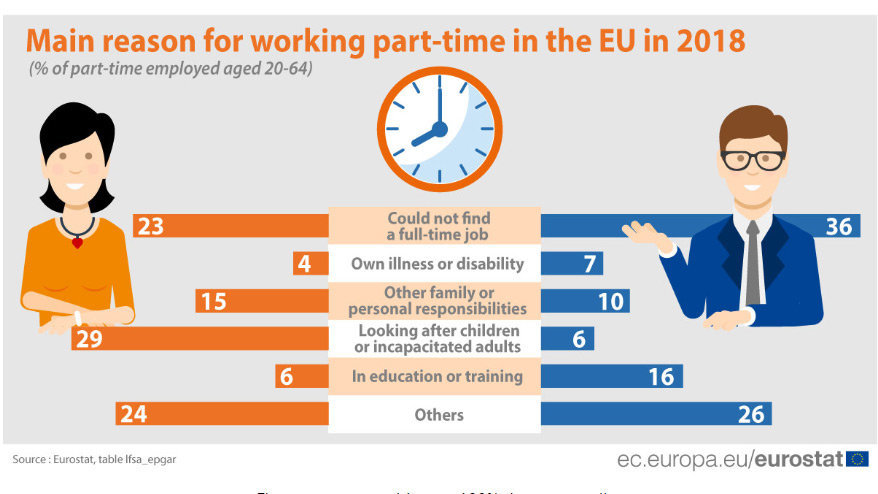In the 28 countries of the European Union (EU) 40,7 million people worked part-time in 2018. Of them, 31.2 million were women and 9.5 million men aged 20 to 64 years. These figures published by the statistical office of the EU (Eurostat) represented 19% of total employment in the EU.
In Finland, 326,000 persons did part-time work in 2018, of which 217,000 were women and 109,000 were men.
This greater presence of women in part-time jobs is a constant repeated in all the countries of the European Union except Romania.
Outside the EU there are other exception in the western Balkans: Montenegro, Serbia and North Macedonia.
Why do people do part-time work? And why are there many more women than men who work part-time? Eurostat has asked European men and women.
 Respondents reported that the main reason for working part-time was 'not finding a full- time job' (26%), followed closely by 'looking after children or incapacitated adults' (24%).
Respondents reported that the main reason for working part-time was 'not finding a full- time job' (26%), followed closely by 'looking after children or incapacitated adults' (24%).
Men (36%) reported that they worked part-time because of not finding a full-time job more frequently than women (23%). On the other hand, working part-time to look after children or incapacitated adults was reported more often by women (29%) than men (6%).
Part-time job due to lack of full-time work
Across the EU Member States, the share of persons who worked part-time because they could not find a full-time job varied significantly.
The highest proportion was reported in Greece (70%), followed by Italy (66%), Cyprus (65%) and Bulgaria (59%). The lowest shares were recorded in Estonia (6%), followed by Belgium, Czechia and Slovenia (7% each) and the Netherlands (8%).
Source: Eurostat
*Figures in the above country-table are in thousands.
Some figures may not add up due to rounding.











